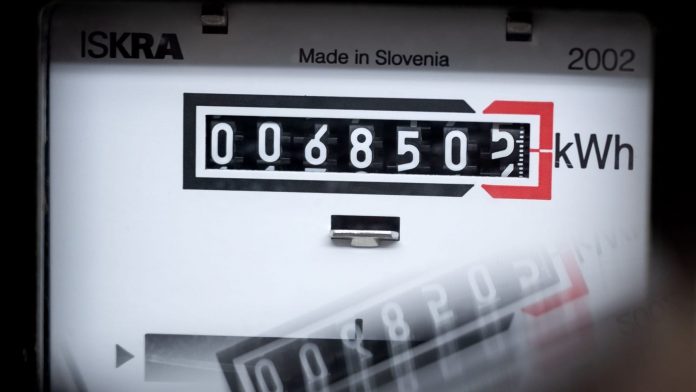The federal government has canceled the subsidy for the network fee. Is the price shock now coming for consumers? A survey among electricity providers provides information.
The news shocked electricity customers shortly before Christmas: In the budget compromise, the federal government canceled the federal subsidy of 5.5 billion euros for the electricity networks, and the four major long-distance line operators then increased the network fees from 3.12 cents/kilowatt hour (kWh) to 6.34 at the turn of the year cents/kWh more than doubled. Since the taxes make up around 25 percent of the electricity price for private households, this could have a certain effect. Or?
At least the first suppliers are now giving the all-clear: the jump in electricity prices will probably be significantly smaller than initially feared and will only reach customers with a delay. This was the result of a survey by the German Press Agency among selected utilities and municipal utilities throughout Germany.
A spokesman for Eon Energie Germany announced, with a view to the brand's six million electricity customers: “There is currently no change in prices for our existing customers.” However, he did not rule out the possibility of an increase later. There is currently no decision.
Several suppliers keep tariffs stable
The Leipziger Stadtwerke, Enercity from Hanover and SachsenEnergie from Dresden even stated that they wanted to forego an increase completely. N-Ergie from Nuremberg also assured that it would not pass on the increased network fees for the time being. “Accordingly, we are keeping our electricity prices stable,” said a spokesman.
In some cases, providers even want to lower prices: the Dortmund utility DEW21 on March 1st for basic services, the Frankfurt am Main-based Eon subsidiary Süwag on May 1st. RheinEnergie from Cologne and the Stadtwerke Göttingen, however, announced that they would increase prices on April 1st. Both said that the increased network fees would be passed on in full to the customers.
However, most of the 26 suppliers surveyed by the dpa did not yet provide any specific information. They said they were still doing the math. However, a spokesman for the Munich municipal utility company added: “One thing is already clear: the price of electricity will rise.”
The fact that the higher network fees, which have been in effect since January 1st, were not immediately added to consumers' electricity prices is due to the short-term nature of the decision: it was only on December 13th that the traffic light coalition decided to cancel the subsidy for the electricity network provided by long-distance line operators The network fees then increased at the turn of the year.
Association expects higher prices
Because of the short deadline, it was not possible for the suppliers to pass this on to their customers as early as January 1st, said Kerstin Andreae, the general manager of the Federal Association of the Energy and Water Industry (BDEW). In basic care, increases would have to be announced six weeks in advance, and in other contracts usually at least a month in advance. However, Andreae added that she assumes that most suppliers will make up for the increase soon.
The fact that some suppliers are still keeping prices stable or even lowering them was explained by the recent fall in procurement costs. “Since the procurement strategies of energy suppliers are very different, in individual cases cheaper procurement costs may be able to partially compensate for the increased network fees.”
According to calculations by the IT service provider Enet, which specializes in energy companies, the increase in network fees is less severe than feared: of the 3.3 cents per kilowatt hour that was added to the long-distance lines, the local distribution networks to which households depend would receive a small amount Only cut 1.1 cents.
This means that the increase for private customers will be less severe than initially feared. On average, for a typical family household with 3,500 kilowatt hours of annual consumption, this means an additional burden of almost 38 euros per year. But that was significantly less than many had initially feared. The comparison portal Check24 had predicted an additional burden of up to 472 euros in electricity costs for a multi-family household (5,000 kWh).
What is not taken into account is that the price of electricity on the wholesale market is sometimes very lower. Customers could also feel this price reduction in a few months. Nevertheless, experts recommend always keeping an eye on the providers and preparing for a possible change of electricity provider.


